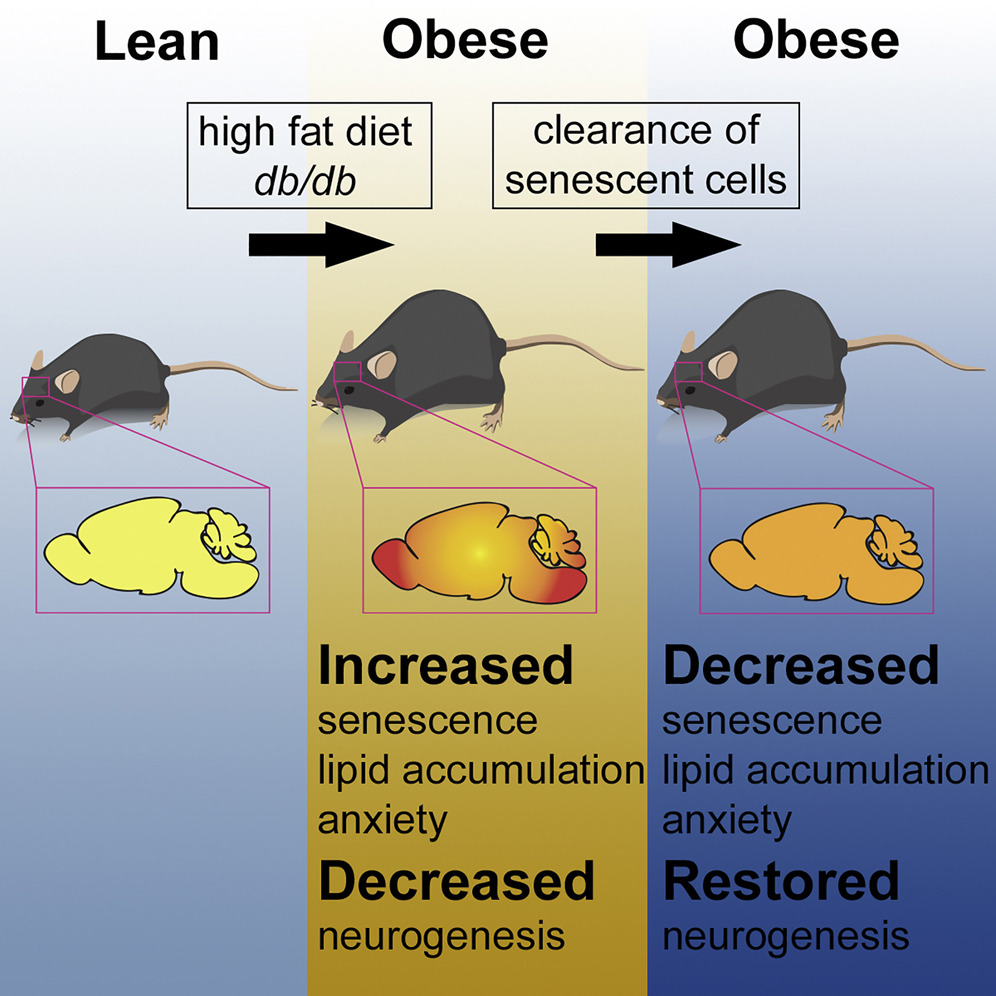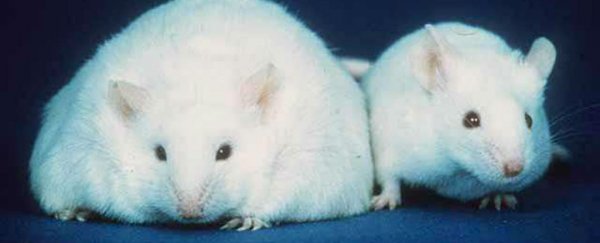There's something unusual going on in the brains of obese mice, and if the pattern extends to humans, it could be a new target for one type of anxiety.
Scientists have linked obesity to a number of different neuropsychiatric disorders, including anxiety and depression, but the exact nature of this relationship is still poorly understood, making treatment difficult.
New research now suggests the answer may have to do with an overabundance of "zombie cells".
Using mouse models, researchers from the University of Newcastle have shown that overweight mice tend to have more of these zombie cells in the region of their brains that controls anxiety.
And, even more curious, when these malfunctioning cells are removed, the mice appear to show less anxious behaviour.
The name of the target pretty much says it all. Zombie cells, also known as senescent cells, are semi-dormant cells that build up in certain parts of the brain, impairing normal function in that area.
Past research shows that these cells can contribute to different symptoms of ageing, including osteoporosis, diabetes and muscle weakness. But now, it appears they are also major contributors to obesity-induced anxiety.
By comparing genetically modified mice and normal mice, the researchers found that the obese mice developed more fat cells in the lateral ventricle of the brain - the part that controls stress response. Even more telling, this region also showed an increase of senescent cells.
 (Cell Metabolism/CC BY 4.0)
(Cell Metabolism/CC BY 4.0)
The link between lipid build-up and senescence is still not understood, but when the researchers injected a drug that kills off these zombie cells, the fat cells began to disappear and normal cell growth resumed.
At the same time, the mice also began to display less anxious behaviour. This means that even though they were still obese, the mice were less anxious about moving around in open spaces and they were also able to complete maze challenges faster.
"Our work suggests that targeting senescent cells may represent a new therapeutic avenue for treating obesity-induced neuropsychiatric dysfunction," the authors conclude.
But this hypothesis is still highly speculative. There remains a lot of work to be done before such a treatment becomes a reality.
Currently, there is no way to eliminate zombie cells from specific areas of the brain, like the lateral ventricles, and that will be highly necessary if human clinical trials are to validate this approach.
Even still, by pinpointing a new drug target for anxiety, the research has taken an important step forward.
This study has been published in Cell Metabolism.
